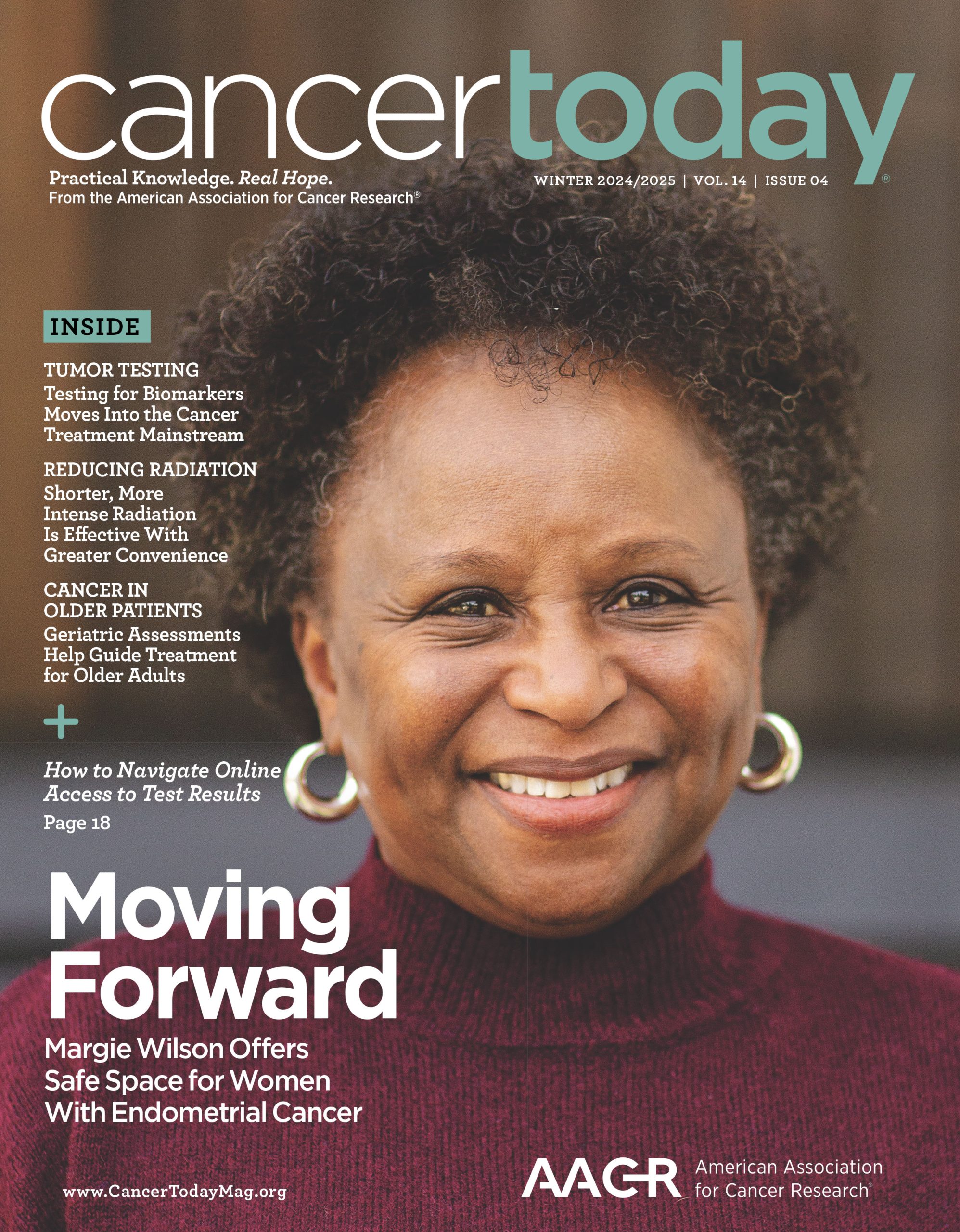European Society for Medical Oncology Issues Guidance on Next-Generation Sequencing for Metastatic Cancer Patients
In recommendations published in the Aug. 24 Annals of Oncology, the European Society for Medical Oncology (ESMO) endorsed the routine use of next-generation sequencing (NGS) in people with advanced lung adenocarcinoma, prostate cancer, ovarian cancer and cholangiocarcinoma. NGS provides DNA analysis of tumors quickly and at low cost. The test can help physicians uncover genetic abnormalities that might qualify a patient for a targeted therapy. “While this technology has been widely implemented, there are no recommendations from scientific societies about its use in oncology practice,” the authors wrote. ESMO’s guidelines note that patients with types of metastatic cancer not specifically listed in the guidance could still discuss NGS with their physicians, weighing the cost to the payer and the potential benefits to the patients. “When an alteration is uncommon, it will be difficult to gather enough patients in research studies to generate the evidence necessary for using NGS. So, beyond the cancers in which everyone should receive NGS, there is room for physicians and patients to discuss the pros and cons of ordering these tests,” said co-author Joaquin Mateo, chair of the ESMO Translational Research and Precision Medicine Working Group and group leader of Prostate Cancer Translational Research at the Vall d’Hebron Institute of Oncology in Barcelona, Spain. In the U.S., the Centers for Medicare & Medicaid Services has approved coverage for NGS for patients with recurrent, relapsed, refractory, metastatic or advanced cancers, provided that the genetic testing is seeking alterations for which there is a treatment approved by the Food and Drug Administration. Experts still debate which patients are the best candidates for testing in certain cancer types.
Coronavirus Carries Varying Levels of Risk for Different Cancer Types
A study published Aug. 24 in Lancet Oncology breaks down the risk of coronavirus infection and death by cancer subtypes, gender and age. The research uses data from approximately 1,000 cancer patients who were included in the UK Coronavirus Cancer Monitoring Project (UKCCMP) registry, and supports some previous findings. The study authors note, for example, that patients with blood-related cancers were more likely to have more severe COVID-19, more likely to require more intensive support interventions, and more likely to die compared with patients with other types of non-hematologic malignancies. In other cases, the evidence provides a contrasting view to previously published research. The study suggests that lung cancer patients may not be at increased risk of coronavirus infection compared to other cancer survivors. “Our results could be useful to assist physicians in informed risk–benefit discussions to explain COVID-19 risk and enable an evidenced-based approach to national social isolation policies,” the study authors wrote. Other efforts to answer these types of questions by looking at data from registries are explained in an article published Aug. 27 on Healthcare-In-Europe.com, which provides a straightforward overview of four cancer registries from around the world, including UKCCMP.
FDA Approves Liquid Biopsy Test Across Tumor Types
The Food and Drug Administration has approved FoundationOne Liquid CDx, a liquid biopsy test that guides treatment decisions across tumor types. Using a blood sample, the test profiles more than 300 cancer-related genes and can identify alterations, genomic signatures and single gene alterations, such as NTRK fusions, to help inform the use of other therapies, a press release stated. The company also notes that the test can be used as a companion diagnostic, which can determine whether patients’ tumors might quality for Rubraca (rucaparib), a PARP inhibitor approved for men with metastatic prostate cancer who harbor BRCA1/BRCA2 mutations, as well as three tyrosine kinase inhibitors approved for first-line treatment of non-small cell lung cancer: Iressa (gefitinib), Tagrisso (osimertinib) and Tarceva (erlotinib). “All patients should have access to high-quality genomic insights about what is driving their tumor to help inform personalized treatment planning,” said Andrea Ferris, president and chief executive officer of LUNGevity Foundation. “For many patients, getting a tissue biopsy is not an option due to tumor location or the patient’s health status, or a patient may simply prefer not to have an additional procedure. Blood-based biomarker testing options can help to expand access to these actionable genomic insights in patients with advanced cancer.”
Cancer Today magazine is free to cancer patients, survivors and caregivers who live in the U.S. Subscribe here to receive four issues per year.





